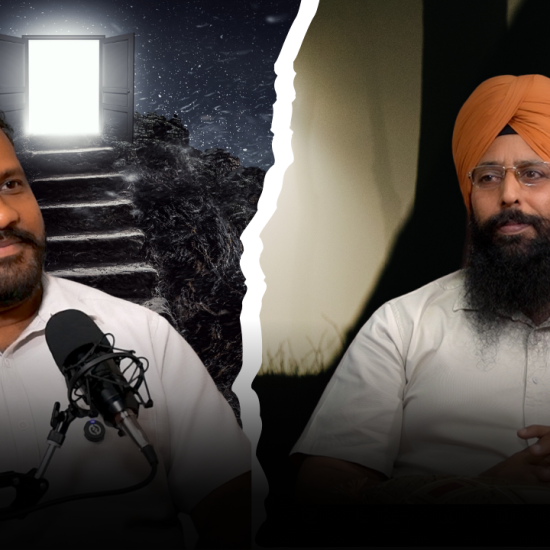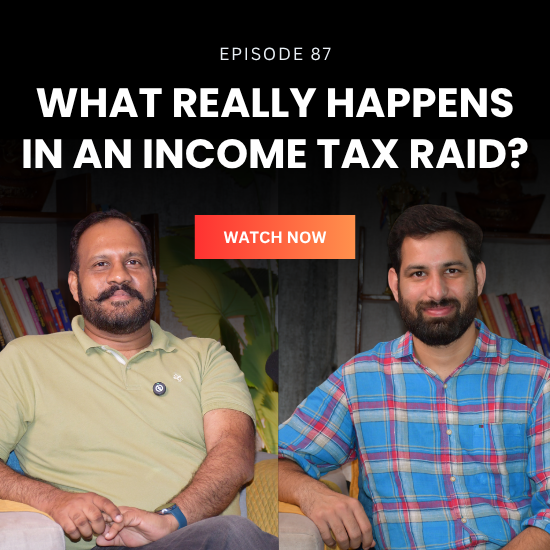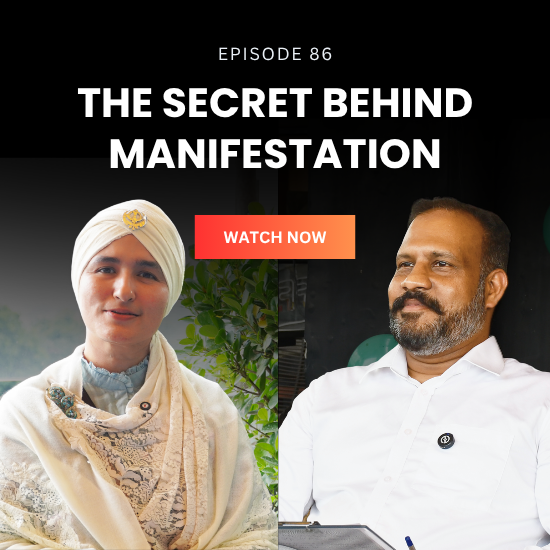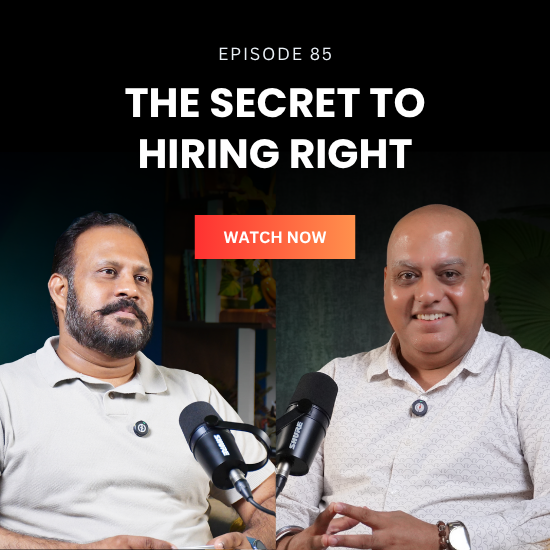Summary
Summary
Here’s a detailed podcast summary based on the conversation with Supreme Court Lawyer Surbhi Chopra:
In this thought-provoking episode of The Alpha People, host Naveen Kumar Verma engages in a deep and insightful conversation with Supreme Court Lawyer Surbhi Chopra. The discussion sheds light on the challenges of legal education, the complexities of family law, the rising rate of divorce cases, and the inefficiencies within the Indian judicial system. Surbhi shares her journey as a first-generation lawyer, the struggles she faced while studying in India and the UK, and her experiences in handling high-profile legal cases.
Surbhi Chopra’s Journey into Law
From a young age, Surbhi was determined to pursue law. She recalls carrying law books to school, showing early signs of her interest in the legal field. Unlike many law students who struggle to find clarity in their career path, she was always certain about becoming a lawyer. Despite facing challenges as a first-generation lawyer, she broke through barriers with hard work, persistence, and strong family support. Studying law in the UK and India gave her a broader perspective on the legal profession. She shared the difficulties Indian students face abroad, especially in adapting to a different education system, financial burdens, and the prevalence of paid thesis writing in foreign universities. Many students struggle to complete their coursework, often paying thousands of pounds to get assignments done, only to face disqualification. Surbhi’s internship struggle in the UK was another learning experience. Unlike India, where internships are unpaid but free, UK law firms charge interns money for training. She was fortunate to find a firm that accepted her without a fee, which helped her gain practical experience in immigration and family law.Work Culture & Misconceptions About Work-Life Balance
Surbhi strongly critiques the modern work culture, where young professionals prioritize salary and perks over learning and skills. She highlights a growing trend where fresh graduates demand high salaries without understanding the actual work. She emphasizes that work-life balance is a myth, stating that success comes only when people sacrifice time, effort, and comfort to learn and grow in their careers. Drawing from her own experience, she recalls working late nights, studying case files, and prioritizing work over leisure. She also shares how her father once jokingly asked her, “Did your boss gift you property? Why are you working so hard?”, showcasing the dedication needed to excel in the legal field.Understanding the Indian Legal System vs. Foreign Legal Systems
A major part of the conversation focuses on the differences between solicitors, barristers, and advocates. In the UK, the legal profession is divided into solicitors (who handle client interactions and paperwork) and barristers (who represent cases in court). However, recent legal reforms allow solicitors to appear in court with special permissions. She explains that Indian law degrees are not valid in the UK, and any Indian lawyer wishing to practice there must convert their degree through additional exams, similar to how doctors and CAs require certification to work internationally.The Rise in Divorce Cases & Family Law Issues
Surbhi shares eye-opening insights into the increasing rate of divorces in India, particularly in metro cities. According to her, the biggest reasons for divorce today are:- Lack of patience: Couples give up too easily instead of resolving conflicts.
- Unrealistic expectations: Women and men both expect too much from their partners without compromise.
- Financial conflicts: Expenditures have increased, leading to constant fights over money.
- Social media influence: Platforms like Instagram, Tinder, Bumble, and Facebook manipulate people’s minds, leading to dissatisfaction in relationships.
Legal System Manipulation & The Atul Subhash Case Reference
One of the most impactful moments in the conversation was when Surbhi discussed the flaws in India’s legal system and how unqualified lawyers are damaging its credibility. She references the Atul Subhash case, stating: “If no action is taken, more Atul Subhashes will emerge. The quality of lawyers is deteriorating because of these unchecked law universities. We don’t have enough judges, and the backlog in courts is increasing. If one day Modi decides to fix this, the legal system might finally get cleaned up.” This statement highlights:- The declining standards in legal education due to unregulated admissions.
- Judicial inefficiencies, with cases being delayed for years.
- The urgent need for legal reforms to ensure only competent lawyers enter the profession.
Live-in Relationships & Changing Social Norms
The conversation also touches upon the legality of live-in relationships in India. While still not fully legal, courts are increasingly acknowledging and protecting live-in partners, especially in cases of domestic abuse or separation. She mentions how feminism has taken an extreme turn, sometimes leading to false accusations and unfair legal battles where men are wrongly accused. She shares how in one case, the court punished a woman for filing a false rape case after six years of a consensual relationship.The Future of India’s Legal System & Reforms Needed
Surbhi ends the conversation by discussing the dire need for judicial reforms. She points out that:- India has a severe shortage of judges, leading to an overburdened court system.
- Legal education reforms are necessary to ensure that only competent professionals enter the field.
- Many legal loopholes are being misused, turning justice into a business transaction.
Final Thoughts
This episode of The Alpha People offers a brutally honest look into the realities of law, relationships, and the legal profession. Surbhi Chopra’s insights expose both the strengths and flaws of the system, making it an essential listen for aspiring lawyers, married couples, and anyone curious about the legal landscape. The episode serves as a wake-up call for legal professionals, lawmakers, and society at large, urging them to address the systemic issues that continue to plague India’s judiciary.🔔 Don’t forget to subscribe & share if this conversation resonated with you!
Frequently Asked Questions
Certainly! Here are some potential questions and answers based on the podcast conversation:
On Studying Law & Career Challenges
It’s not about toughness. These exams are difficult, but I was born to be a lawyer. When I was in 9th or 10th class, I knew law was my calling. I wanted to establish myself as a lawyer, not go in another direction. My journey was never about switching careers but about excelling in law.
On the Struggles of Studying Law in the UK
The biggest struggle was financial. Many Indian students don't realize how tough it is until they get there. The education system is different, and many students pay £3,000–£4,000 just for thesis writing. Some get caught and are disqualified. I have seen parents in India silently bearing the burden, spending lakhs to help their children. The adjustment is tough, and many want to come back but don’t know how to face their families.
On Work Culture & The Myth of Work-Life Balance
No, it’s just a myth. Work-life balance is an illusion people sell to avoid hard work. You have to make sacrifices if you want to succeed. People today want high salaries, perks, and benefits without actually learning the job. If I give you everything—salary, perks, comfort—then don’t question the work. Success comes when you immerse yourself in your profession, not when you keep looking for balance.
On Family Law & The Rising Divorce Rate
Have you noticed that divorce rates in India are increasing day by day? What’s the reason behind it?
Absolutely, divorce cases are rising rapidly. The biggest reason is a lack of patience. Women are financially independent, which is great, but many have unrealistic expectations. Social media influences have made people compare their relationships to others, leading to dissatisfaction. Earlier, families encouraged women to adjust, now they encourage fights. Another issue is financial expectations—some women demand ₹30,000 a month for salon expenses and file for divorce when husbands refuse. This is how marriage is turning into a business deal.
On Legal System Exploitation & False Cases
Yes, it’s happening a lot. The real victims don’t come forward, and those who are not victims misuse the system. Many cases are filed just for financial settlements. We see dowry cases, domestic violence complaints, and false accusations—where lawyers guide clients on how to fabricate charges. Settlements happen for ₹15–20 lakhs, making it a money-making game rather than a fight for justice.
On The Atul Subhash Case & Legal Education Reforms
If no action is taken, more Atul Subhashes will emerge. The quality of lawyers is deteriorating because of these unchecked law universities. We don’t have enough judges, and the backlog in courts is increasing. If one day Modi decides to fix this, the legal system might finally get cleaned up.
On Live-in Relationships & Changing Laws
Live-in relationships are not fully legal, but courts are recognizing them more often now. However, many women file rape cases after being in live-in relationships for years. In one case, a woman dragged a man to court after 6 years, claiming he misled her. The court ruled in the man’s favor, saying she wasted years of his life and falsely accused him. There needs to be legal clarity so that both men and women are protected.
On the Future of India’s Legal System
We need more judges, better regulation of law colleges, and stricter entry requirements for legal professionals. The system is overloaded with cases, and many lawyers are simply not qualified. Without reforms, the legal system will continue to be exploited for financial gains instead of justice.





